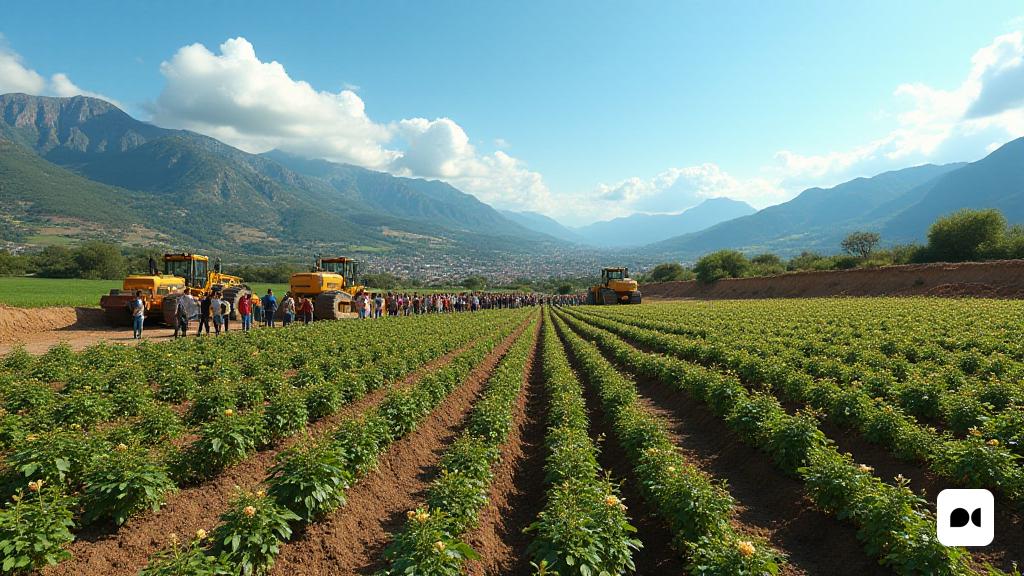Returning home: Agricultural Resistance to Maresme
After being evicted in December, a group of farmers and neighbors in Santa Susanna has once again occupied their land in the Pla de Balasc. With the determination of defending one of the most prolific agricultural areas of the region, they have established constant surveillance to counteract the works that threaten their way of life.
Controversial works and its environmental impact
The current urbanization project provides for the extension of a road, the creation of a parking for 200 vehicles, and a dry navy with a capacity of 300 boats. Funded with European Fund Next Generation, this plan has generated intense controversy over its implications for the water balance of the area. The platform ‘Save the Balasc Plan’ warns that constant groundwater pumping, which exceeds 800,000 m3 daily, can lead to salinization of the soil and, in this way, the disappearance of local agriculture.
An alarming warning for the agricultural future
Josep Maria Baqués, representative of Unió de Farmers, emphasizes that this constant pumping is a direct threat to the survival of farms. “This project contradicts the principles of European funds, which seek to protect the environment,” says Baqués, emphasizing that the lack of information on water extraction in the initial planes is worrying.
The Biodiversity Price: a species in danger
The works not only threaten agriculture, but also jeopardize local biodiversity. Neighbors have observed a decrease in the marine captain, an endemic and endangered species. According to research, Santa Susanna could house the largest population of this plant worldwide.
Rights ignored: tenants and agreements
Critics of the City of Santa Susanna also focus on the lack of consultation with the tenants affected by the project. Many owners have signed agreements that compromise their land without the tenants being informed, generating a climate of distrust and concern among local farmers.
The fear of urban speculation
The signed agreements include clauses that could lead to future land assignments, a practice that, according to experts, could facilitate a protected land reclassification. “This situation suggests that the current project could be a Trojan horse for long -term speculation,” they warn from Unió de Farmers.
Mobilization and political support
In early April, representatives of the agricultural sector filed a request for research to the Territory and Housing Commission to investigate possible irregularities in the process. With the support of various parliamentary groups, their demand seeks to open a public debate on the sustainability of the current territorial model.
The support of the community and authorities
The Farmers Union and the Pagesa Assembly have sought alliances with political figures, including former President Carles Puigdemont, who has expressed their support for the cause through social networks. The situation in Santa Susanna has aroused the interest of many, who see in this struggle an example of defense of local agriculture and sustainability.
Reflections on the future of the territory
The struggle of Santa Susanna’s neighbors and farmers exemplifies the increasing tensions between tourist and agricultural preservation in the Maresme. ‘What kind of progress is this that expels us from our territory and threatens our diet?’, Baqués asks, emphasizing the importance of protecting local agriculture as an essential element for the food sovereignty of the region.

